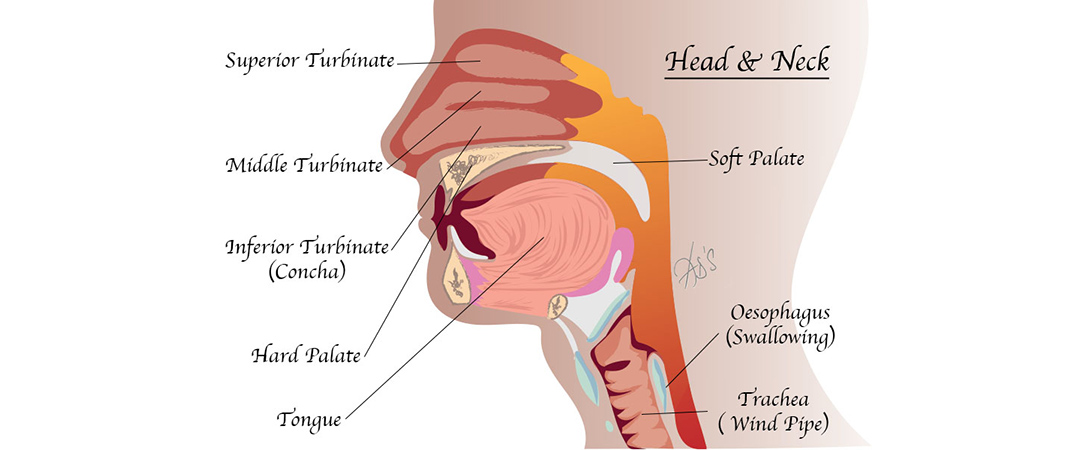Difficulty in swallowing, also known as dysphagia, is a common condition
affecting all age groups, especially the elderly
Difficulty in swallowing, also known as dysphagia, is a common condition affecting all age groups, especially the elderly. It is commonly related to benign, temporary conditions, and rarely represents a serious disease, such as a tumour or a progressive neurological disorder. However, it is important to investigate, to rule out any serious condition by an ENT/ head and neck surgeon.
Causes of swallowing disorders
The following are some common causes of swallowing problems:
- Difficulty in chewing thoroughly because of poor teeth, ill fitting dentures, or even a common cold
- Gastro esophageal reflux. This occurs when stomach acid moves up the esophagus to the pharynx, causing discomfort
- Other causes may include: hypertension; diabetes; thyroid disease; stroke; progressive neurologic disorder; the presence of a tracheotomy tube; a paralysed or unmoving vocal cord; a tumour in the mouth, throat, or esophagus; or surgery in the head, neck, or esophageal areas
- Medications such as: nitrates, anticholinergic agents found in certain anti-depressants and allergy medication, certain types of blood pressure pills, calcium tablets, aspirin, iron tablets, vitamin C, antipsychotic medication, tetracycline (used to treat acne)
Common symptoms of swallowing disorders
Symptoms of swallowing disorders may include but not limited to:
- Discomfort in the throat or chest (often also related acid reflux)
- Foreign body sensation or lump in the throat
- Feeling that food or liquid sticking in the throat
- Weight loss
- Coughing or choking caused by bits of food, liquid or saliva
- Voice change
- Drooling
- Malnutrition and dehydration
How we diagnose cause of swallowing disorders
- A detailed history is obtained and full examination is performed
- A small flexible scope (nasal-endoscope) is inserted through the nose, to view the back of the throat and the gullet. This is done during the consultation
- If necessary, an examination of the esophagus, named trans nasal oesophagoscopy (TNE), may be carried out
- Depending on the result of endoscopic examination further tests such as a barium swallow or other scans or videofluroscopy (video assisted assessment) may be performed
- Occasionally examination under a general anaesthetic may be required
Treatment of swallowing disorders
- Treatment is tailored to the cause of the swallowing disorder
- Many disorders can be treated with medication such as drugs to control acidity and muscle relaxants.
- Botulinum toxin (Botox) may be used to reduce the muscle activity in selected cases
- Gastro esophageal reflux can often be treated by changing dietary habits such as, bland diet with smaller, more frequent meals, eliminate tobacco, alcohol and caffeine, weight and stress reduction and avoiding food within 2-3 hours of bedtime and elevating the head end of the bed
- Many swallowing disorders may be helped with swallowing therapy. A speech pathologist can provide special exercises for coordinating the swallowing muscles or stimulating the nerves that trigger the swallow reflex. Patients may also be taught simple ways to place food in the mouth or position the body and head to help the swallow occur successfully
- Some patients with swallowing disorders have difficulty in feeding themselves. Speech and language therapists can aid the patient and family in feeding techniques
- A dietician or nutritional expert can determine the amount of food or liquid necessary to sustain an individual and whether supplements are necessary
- Surgery is performed if there is a narrowing or a stricture. This may be dilated or stretched under a general anaesthetic. If other conditions such as a pouch or a growth, these are dealt with appropriately
Swallowing Problems Consultation Request
Please leave your contact details and we will call you to discuss your requirements and book a consultation.

